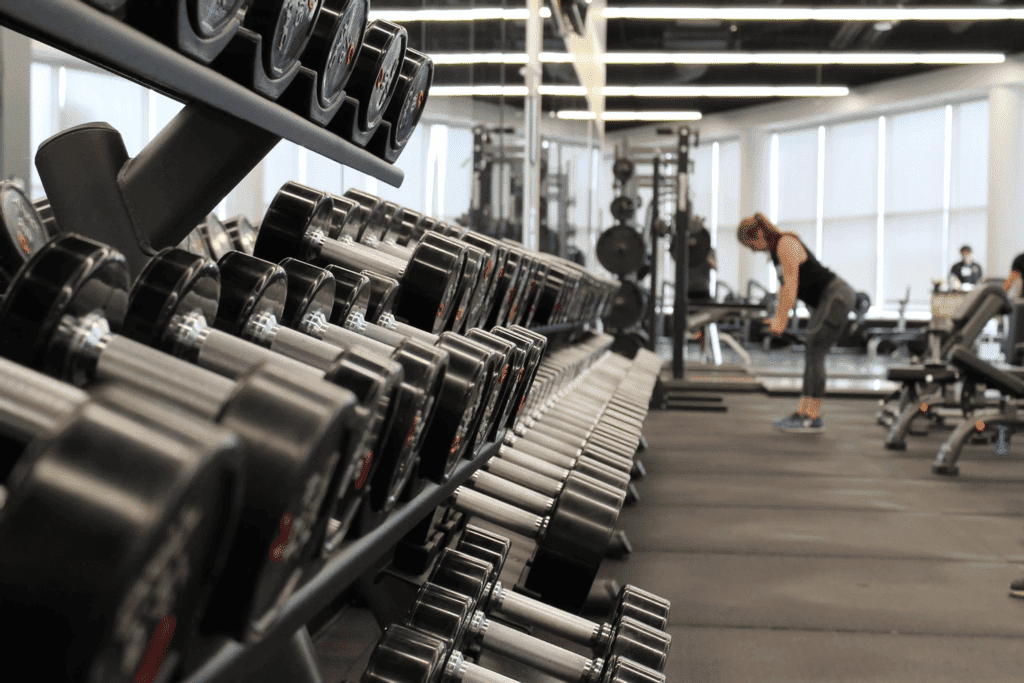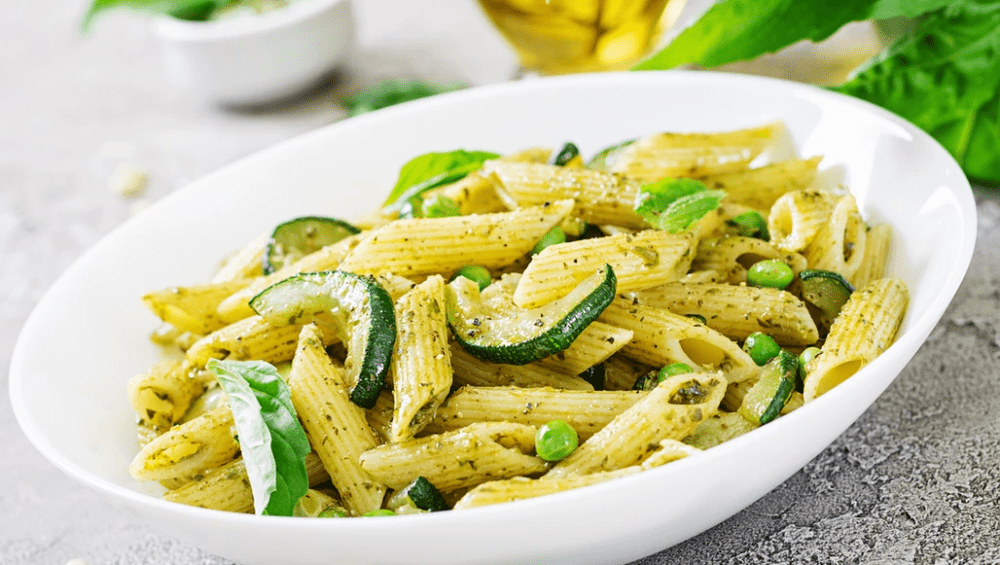How Alcohol Can Affect Your Body Composition
How Alcohol Can Affect Your Body Composition
Editor’s Note: This post was updated on September 10, 2018 for accuracy and comprehensiveness. It was originally published on July 26, 2017
If you begin a conversation about alcohol, you’re likely to get a chorus of varied opinions.
Your one friend swears that her daily glass of red wine will ward off cardiovascular disease, even if it’s at the expense of her six pack abs. Meanwhile, your gym buddy has a zero alcohol consumption policy in an effort to remain as lean as possible and avoid the dreaded “beer belly”.
Is it really possible to enjoy your social drinking and still maintain a healthy body weight and composition?
The answer is somewhat complicated and likely depends on your ultimate goals. Let’s delve a little deeper into the relationship between alcohol and body composition.
How the body metabolizes food
In order to understand how the body metabolizes alcohol, we must first take a look at how the body breaks down different macronutrients. There are three major macronutrients: lipids, carbohydrates, and protein. For example, what happens inside your digestive system when a person consumes a typical mixed meal made up of carbohydrates and fat.
During digestion, carbohydrates are generally metabolized first in what we call the “substrate hierarchy.” As the body breaks down carbohydrates, insulin levels rise and cause fat oxidation to be suppressed.
When insulin levels drop, fat is released from the fat cells for metabolism. Dietary fat is stored temporarily in these fat cells, and fat storage is an ongoing process in the body with fatty acids constantly entering and exiting fat cells through the day.
The temporary delay in fat oxidation is not what causes fat gain; rather, it’s the caloric input and output that determines how many calories will be stored as body fat.
A body composition analysis is essential to completely understanding your health. It breaks down your body into four components: fat, lean body mass, minerals, and body water; and can provide insights into how to change your lifestyle, exercise plan, or healthcare practices.
With a body composition test, we can provide an individualized health plan that best fits your goals and personal needs. Not only will it help you become healthier, but it can reduce the risk of deadly diseases and health issues.

Alcohol
Alcohol is made through the process of fermentation of starch, and traditionally has been classified as having 7.1 calories per gram. But once we take into account its rather high thermogenic effect (the amount of energy it takes to metabolize it), we find that it actually has closer to 5.6 calories per gram. This clocks in at a close second to protein.
However, you’ll often hear that calories from alcohol are defined as “empty”, which mean you do not receive any nutritional value.
Once we add alcohol to our meal, the metabolism of alcohol will take immediate priority. Essentially, fat, carbohydrate and protein oxidation is suppressed.
One study found that when participants were given four meals differing in carbohydrate, fat, protein and alcohol content, the alcohol-rich meal suppressed fat oxidation more than the carbohydrate-rich meal did. There was no difference in hunger or satiety sensations after the test meals.
So why does alcohol metabolism take priority?
The metabolic by-product of alcohol, a process known as microsomal ethanol-oxidizing system, is a compound known as acetate which is toxic to the body, thus your body prioritizes removing these toxins.
Once alcohol is converted into acetate in the liver, it enters circulation and only a very small portion can be converted to fatty acids. Basically, acetate is a poor precursor for fat synthesis. One study attempted to estimate fat synthesis after alcohol consumption and found that only ~3% of alcohol is converted into body fat. In this study what that found was that for every 24 grams of alcohol that was consumed, only 0.8 grams of fat was made in the liver.
It seems that alcohol and carbohydrates both suppress fat oxidation as the body works to first metabolize alcohol and remove it from the body and break down carbohydrate in the presence of elevated insulin. However, while carbohydrates eaten in excess of what the body can store as glycogen can be easily converted into fat, the same cannot be said for alcohol.
While alcohol is a toxin, it doesn’t seem that alcohol calories are converted at a higher rate to body fat than the calories from carbohydrates, fat or protein. Rather, excessive consumption of calories in ANY form is likely to cause fat gain.
Nutritional Differences between Different Types of Alcohol
We discussed the idea that alcohol calories are likely no different than calories from carbohydrates, fat or protein when it comes to weight gain. But what about when we look at different types of adult beverages. Are there nutritional differences between beer, wine, and spirits?



First, we need to take into account caloric content by volume but it’s also important to consider carbohydrate content as this will drastically influence the metabolism of your drink and whether it will be recognized by the body as “alcohol” or “carbohydrate”.
Beer
Light beers typically contain ~100 calories and 5 grams of carbs per 12 oz servingRegular beers typically contain ~150 calories and 10.5 grams of carbs per 12 oz servingIPA’s typically contain ~240 calories and 22 grams of carbs per serving
Wine
Dry red wines typically contain 150 calories and 4 grams of carbs per servingDry white wines typically contain 125 calories and 3 grams of carbs per servingDry Sparkling wine and champagne typically contains 110 calories and 2 grams of carbsFor sweeter wines, you can assume that the carbohydrate content will be slightly higher.
Spirits
Spirits such as vodka, gin, whiskey, rum, and tequila will all contain close to 95 calories and 0 grams of carbs per fluid ounce
Keep in mind that when you mix alcohol with high calorie beverages and mixers, the caloric value and carbohydrate content changes. While 1.5 ounces of tequila may contain only 95 calories and 0 grams of carbohydrates, a margarita might contain somewhere closer to 400 calories and 65 grams of carbohydrates.

Aside from the potentially high number of empty calories alcohol can impair judgment and decrease inhibitions when it comes to making good food choices.
Indulging in alcohol prior to a meal (what is known as an aperitif) has been shown to increase caloric consumption. This is likely due to the increased activity in the brain’s pleasure centers, leading the drinker to over-consume appealing food.
Another factor is the restricted ability to monitor food intake and stay on your exercise routine when you have been under the influence the night prior. Calorie counting may very well fly out the window, and waking up with a hangover the day after a night of drinking is not always conducive to getting in an intense workout.
This all makes sense. But what about the drinker who consumes alcohol but does not then consume more calories from food and sticks with their regularly scheduled fitness routine?
One study of 19,220 women found that normal-weight women who consumed a light to moderate amount of alcohol actually gained less weight than non-drinkers and had a lower risk of becoming overweight or obese during 12.9 years of follow-up.
Moderate alcohol consumption can improve insulin sensitivity, although the mechanism behind this is still unclear. This would play a role in the way in which the body breaks down and stores carbohydrates.
Though this isn’t a reason to start drinking if you do not currently, it does seem to support the notion that alcohol calories might not be as bad as we once thought.
Side note: There is no strong research to suggest that excess alcohol is any more likely than excess protein, lipids or carbohydrates to cause weight gain independent of the fact that excessive alcohol consumption might also lead to increased food consumption.
Alcohol and Body Composition

It has been said that alcohol may decrease testosterone levels which may very well affect muscle growth, fitness performance and body composition, but research in this area is also not very strong.
A six-week study found that when men and women consumed 30-40 grams of alcohol per day, there was a mere 6.8% reduction in testosterone levels for the men and no change for the women. This means that even while drinking 3-4 adult beverages per day for three weeks, there was only a very small reduction in testosterone.
Thus, for moderate drinkers, testosterone reduction does not seem to pose a significant threat.
But what about consuming alcohol as a post-workout drink? After all, marathoners have been throwing back a pint or two at the finish line for decades.
One study looked at the hormonal response to alcohol consumption post-workout. Researchers gave participants the equivalent of an alcoholic drink after their resistance exercise and found that despite the significant alcohol consumption, there was no effect on testosterone and only a modest prolonged cortisol effect compared to the exercise-only group.
Another study looked at the effects of alcohol consumption before, during, 24 hours after, and 48 hours after a workout and found no significant changes in muscular performance nor any accelerated muscular damage.
Granted, some studies have found the opposite. For example, one study found that a moderate dose of alcohol may impair normal muscle recovery after exercise. However, this effect was found after very strenuous eccentric exercise that the average gym-goer is less likely to engage in. Another study found that when given very high doses of alcohol (1.5 g/kg of body weight) post-exercise, the ethanol acted as a depressant and was linked with prolonged secretion of testosterone.
In an alcoholic population, research has found that chronic drinkers suffered from reduced rates of muscle protein synthesis but the same cannot be said for a light to moderate drinking population.
So can you enjoy your martini and still reap the benefits of your workout?
The answer is yes!
As long as you keep your drinking to a moderate level which may mean a few times per week for most exercisers. Serious athlete may want to think twice about regular bouts of heavy drinking, as alcohol consumption been linked to higher incidence of sports-related injury and even small drops in testosterone or increases in cortisol which may pose a threat to their high-level fitness goals.
What’s the bottom line?
Can alcohol be included as part of a healthy diet without considerably deterring the drinker from achieving the body they want and work so hard for?
The answer is yes!
For optimizing weight and body composition, research shows that it is more important and beneficial to keep overall caloric intake under control. When consuming alcohol, try to remember the following:
The metabolism of alcohol DOES affect fat metabolism but likely not more than other macronutrients like carbohydrates. That said, try to avoid consuming excessive calories to avoid fat storage and if drinking regularly, be sure to account for alcohol in your usual caloric intake.If you’re trying to maximize your time spent in the gym and minimize the effects that a six-pack might have on your six pack, you might want to limit sugary mixers and cocktails and when choosing beer, stick to lighter versions.Keep calories in check by opting for these lower calorie spirits but also being sure to consume ample amounts of lean protein to promote satiety (remember, alcohol does not have a satiating effect so to avoid overeating while drinking, fill up on protein!) Stay hydrated and get to sleep on time. This way, you won’t have to skip your workout in the morning!And last but not least, always remember to drink responsibly! Excessive levels of alcohol is never healthy!
**
Alix Turoff MS, RD, CDN, CPT is a Registered Dietitian and NASM Certified Personal Trainer. She sees patients privately and also works as a freelance consultant and writer.







